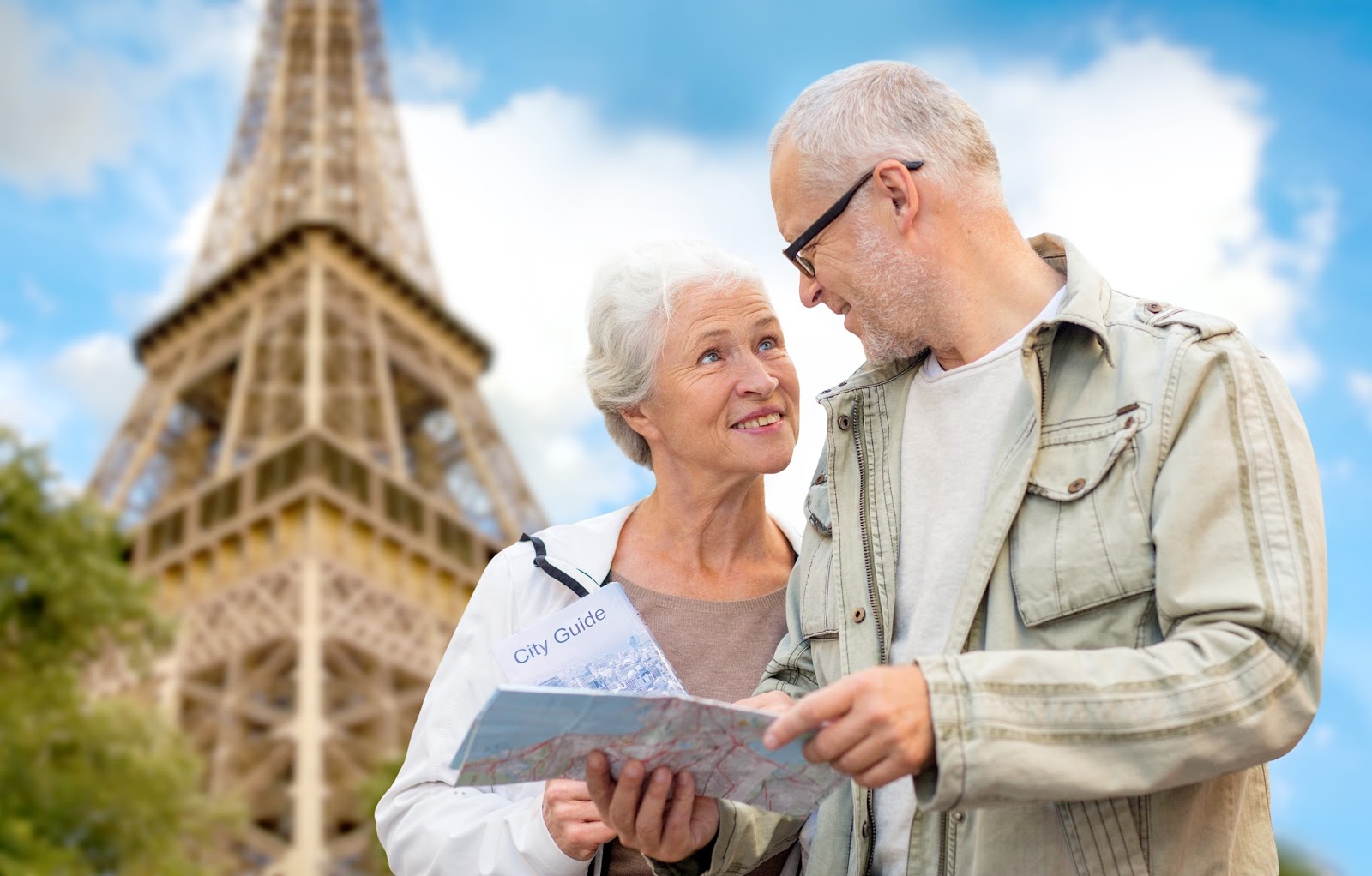Trips for single seniors are experiencing a surge in popularity, offering a wealth of opportunities for exploration, relaxation, and social connection. Whether seeking adventurous excursions or tranquil retreats, solo senior travel caters to diverse interests and activity levels. This guide delves into the planning process, addressing budgeting, safety, social aspects, destination choices, and practical considerations to ensure a fulfilling and memorable journey.
From choosing the right destination and accommodation to budgeting effectively and prioritizing safety, this comprehensive guide equips single seniors with the knowledge and resources to plan their dream solo adventure. We’ll explore diverse trip types, offer practical tips, and highlight the unique benefits and considerations specific to solo senior travel.
Safety and Health Concerns
Solo travel for seniors presents unique challenges, requiring careful planning and preparation to mitigate potential risks. Addressing safety and health concerns proactively ensures a more enjoyable and worry-free experience. This section details key considerations for single senior travelers to help them navigate potential difficulties and enjoy their adventures with peace of mind.
Potential Safety Concerns and Solutions
Safeguarding personal security is paramount for solo senior travelers. Potential threats include theft, scams, accidents, and medical emergencies in unfamiliar environments. To mitigate these risks, several practical strategies can be implemented. For instance, travelers should research their destinations thoroughly, understanding local customs and potential hazards. They should also share their itinerary with family or friends and regularly check in.
You also can investigate more thoroughly about tour companies for singles to enhance your awareness in the field of tour companies for singles.
Utilizing reputable transportation services and avoiding poorly lit or isolated areas at night are crucial. Carrying a personal safety alarm and being aware of surroundings can significantly reduce vulnerability. Finally, keeping important documents and valuables secure, perhaps using money belts or hotel safes, is essential.
The Importance of Travel Insurance and Key Coverage Elements
Comprehensive travel insurance is not merely advisable; it’s essential for senior solo travelers. Unexpected medical emergencies, trip cancellations, lost luggage, and other unforeseen events can incur significant costs. A robust policy should cover medical expenses, including emergency evacuation and repatriation. Trip cancellation or interruption insurance protects against financial losses due to unforeseen circumstances. Baggage insurance covers lost or damaged luggage, while personal liability insurance provides protection against accidental injury or damage to others.
Consider adding coverage for pre-existing conditions, especially if you have any health concerns. For example, a policy that covers medical evacuation from a remote area is invaluable in case of a serious health issue during a trip to a less developed country.
Health-Related Considerations for Senior Travelers
Maintaining good health while traveling is crucial, particularly for seniors. This necessitates careful preparation and planning. Packing a comprehensive first-aid kit including any necessary prescription medications is paramount. It is crucial to carry a sufficient supply of medications, well beyond the anticipated duration of the trip, to account for potential delays or disruptions. Additionally, travelers should consult their physician before departure to obtain any necessary vaccinations or health advice specific to their destination.
Knowing the location of nearby medical facilities and having contact information for local healthcare providers is also highly recommended. Finally, understanding local emergency services numbers and protocols is essential in case of unexpected medical events. For instance, knowing how to access emergency medical services in a foreign country, including the local emergency number and the process for contacting them, is crucial.
Choosing the Right Destination

Selecting the perfect destination for a single senior traveler requires careful consideration of various factors beyond just appealing scenery. The ideal location balances personal interests with accessibility and safety, ensuring a fulfilling and comfortable experience. This involves researching destinations, comparing their offerings, and aligning them with individual needs and preferences.Destinations popular among single senior travelers offer a diverse range of experiences.
Some prioritize relaxation and rejuvenation, while others emphasize cultural exploration or adventure. Understanding these nuances is crucial for a successful trip.
Popular Destinations: A Comparative Analysis
Several destinations consistently rank highly among single senior travelers. For example, coastal regions in California, such as Carmel-by-the-Sea and Laguna Beach, offer stunning scenery, mild weather, and a plethora of activities suitable for various fitness levels. However, these areas can be expensive, and accommodation may be limited during peak seasons. Alternatively, destinations like Portugal’s Algarve region boast beautiful beaches, delicious cuisine, and a more affordable cost of living.
However, the Algarve may present more challenges for those with limited mobility due to its hilly terrain. Finally, destinations like Sedona, Arizona, appeal to those seeking spiritual rejuvenation and outdoor activities, but the intense heat during summer months could be a significant drawback for some seniors.
Destinations with Accessible Accommodations and Senior-Friendly Amenities, Trips for single seniors
Many destinations cater specifically to the needs of senior travelers. Cities like San Antonio, Texas, offer a wealth of accessible attractions, including the River Walk, which is easily navigable by wheelchair or with limited mobility. Similarly, many cruise lines provide accessible cabins and facilities, offering a convenient and comfortable travel option for seniors with mobility limitations. European cities such as Amsterdam, with its extensive network of canals and relatively flat terrain, are also increasingly well-equipped for senior travelers, with accessible public transportation and many hotels offering adapted rooms.
These destinations frequently feature ramps, elevators, and well-maintained pathways, ensuring ease of movement.
Factors to Consider When Selecting a Destination
Before booking a trip, careful consideration of several key factors is essential to ensure a safe and enjoyable experience.
- Budget: Establish a realistic budget encompassing flights, accommodation, activities, and potential medical expenses.
- Physical Capabilities: Honestly assess your physical limitations and choose a destination with accessible accommodations and transportation options. Consider the level of walking, climbing, or other physical activities involved in planned excursions.
- Interests: Select a destination that aligns with your hobbies and interests. Whether it’s art, history, nature, or relaxation, ensure the destination offers activities that will engage you.
- Climate: Consider the climate during your travel dates. Choose a destination with a climate that suits your comfort level and avoids extreme temperatures or weather conditions.
- Safety: Research the safety record of your chosen destination, paying particular attention to crime rates and health risks.
- Accessibility of Healthcare: Ensure that adequate healthcare facilities are available in case of emergencies.
- Transportation: Consider the ease and accessibility of transportation within the destination. Is public transport readily available and accessible? Are taxis or ride-sharing services easily accessible?
By carefully considering these factors, single senior travelers can select a destination that promises a memorable and fulfilling experience tailored to their specific needs and preferences.
Technology and Communication: Trips For Single Seniors
Embracing technology is no longer optional but essential for single senior travelers, enhancing both the planning and execution of their journeys and fostering crucial connections with loved ones back home. The digital age offers a wealth of tools designed to simplify travel arrangements and ensure peace of mind throughout the trip.Smartphones and tablets have become indispensable tools for navigating unfamiliar territories, accessing real-time information, and managing various aspects of travel.
From booking flights and accommodations to researching local attractions and translating languages, technology streamlines the entire process, making independent travel more manageable and enjoyable for seniors.
Staying Connected with Loved Ones
Maintaining regular contact with family and friends while traveling is paramount for single seniors, providing reassurance and a sense of security. Several methods exist to facilitate this connection, each offering unique advantages and drawbacks. Choosing the right communication method depends on factors such as budget, technological proficiency, and the destination’s infrastructure.A simple yet effective method is using mobile phones for calls and text messages.
Many international plans offer affordable roaming options, allowing for direct communication with loved ones. However, roaming charges can quickly escalate, prompting consideration of alternative solutions. Consider purchasing a local SIM card upon arrival in your destination country, offering potentially lower call rates, though this requires some technical knowledge and planning. Alternatively, apps like WhatsApp, Skype, or FaceTime allow for free video calls and messaging over Wi-Fi, circumventing costly roaming fees.
Regular check-ins, even short messages, can alleviate anxieties for both the traveler and their loved ones. Scheduling specific times for calls can provide a sense of routine and structure.
International Communication Methods: Benefits and Drawbacks
Navigating international communication requires careful consideration of various methods and their associated advantages and disadvantages. Using a combination of methods often proves the most effective approach.
| Method | Benefits | Drawbacks |
|---|---|---|
| Mobile Phone (Roaming) | Convenience, familiarity, direct calls | High costs, potential for unexpected charges |
| Local SIM Card | Lower call rates, data access | Requires technical knowledge, potential for compatibility issues |
| Messaging Apps (WhatsApp, etc.) | Free calls and messages (with Wi-Fi), easy to use | Requires reliable Wi-Fi access, not suitable for emergencies requiring immediate voice contact |
| Satellite Phone | Reliable communication in remote areas | High cost, bulky equipment |
For instance, a senior traveling to a remote area might benefit from a satellite phone for emergencies, while relying on WhatsApp for regular communication with family when Wi-Fi is available. Conversely, a senior traveling to a city with readily available Wi-Fi may opt primarily for messaging apps, supplementing with occasional calls using a local SIM card to keep costs down.
Planning for various communication scenarios ensures a smooth and secure travel experience.
Embarking on a trip as a single senior presents a unique opportunity for self-discovery and adventure. By carefully considering budgeting, safety, and social aspects, and by selecting a destination that aligns with personal interests and physical capabilities, seniors can create unforgettable travel experiences. With proper planning and preparation, the world awaits, offering a wealth of enriching experiences for solo senior travelers.



